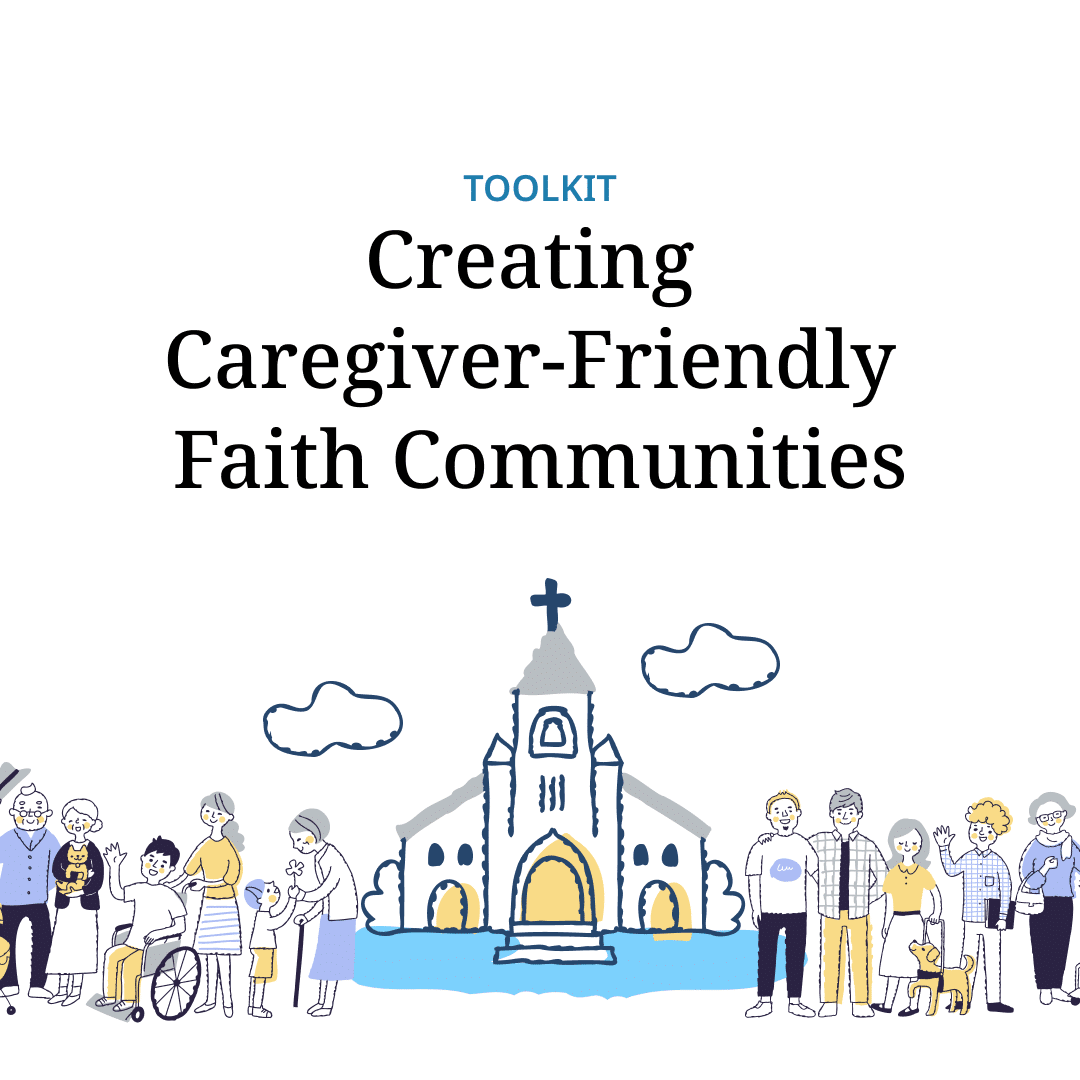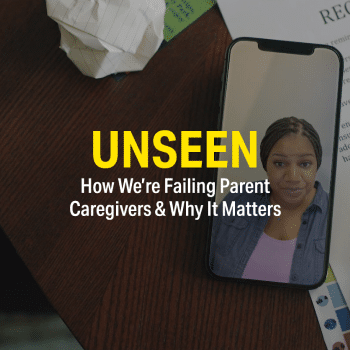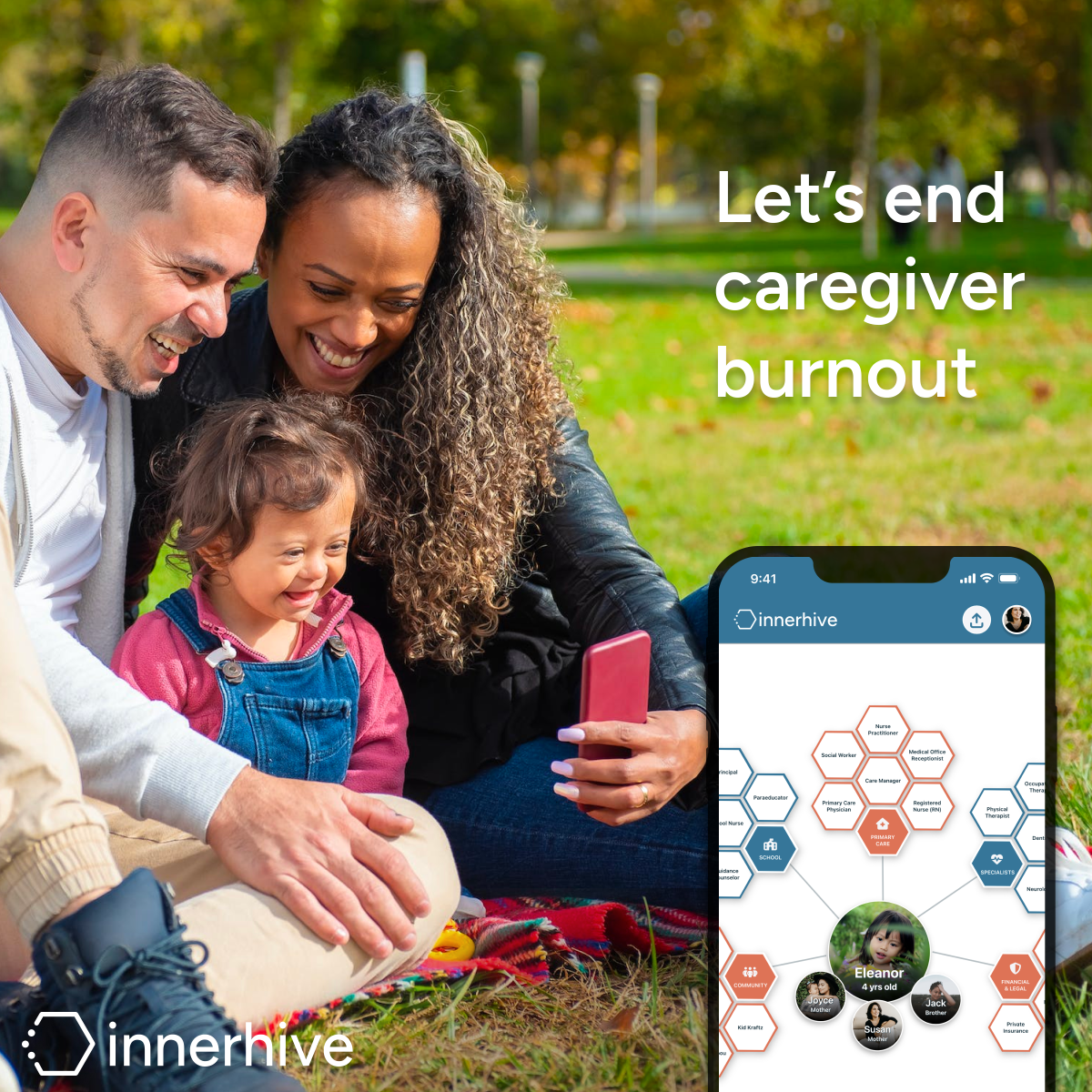
Explore the Caregiver-Friendly Faith Communities Toolkit
Learn how faith communities can support caregivers by fostering a culture of care, accessibility, and practical assistance.
Caregiver-Friendly Faith Communities Toolkit
Presented by

Modern life can be a real grind sometimes, and we all need a break every once in a while. For many caregivers, the work of caring for their dependents is a 24/7 job, and true breaks are extremely few and far between. The relentless nature of caregiving can have long-term negative impacts on emotional, mental, and physical health. Giving caregivers some time off can be a real game-changer in improving their quality of life. One of the most impactful means of support you can offer as a church or faith community is providing opportunities for respite.
The term “respite” might be unfamiliar, but it’s a simple concept: time away from the duties of caregiving, allowing one to rejuvenate, whether by resting or doing an enjoyable activity. Even an hour or two of respite can make a huge difference. Remember, true respite allows the caregiver to choose how to spend their break time.
The desperate need for respite for caregivers is well known and many resources already exist. Here are some ideas for how your faith group can be instrumental in offering respite to caregivers.
Respite organizations already exist at the local, state, and national level, you just have to take the time to find them. The ARCH National Respite Network has a convenient search engine to help you find state and national respite services. The U.S. Department of Health and Human services has an eldercare locator that connects families across the country with various resources, including transportation, home care, and respite care. A simple Google search can help you identify local respite programs.
Additionally, you might consider partnering with organizations like 99 Balloons, a nonprofit that offers short-term respite care to caregivers all across the country. The Respite for All Foundation teaches organizations how to build their own unique respite communities. By building relationships with local, state, or national nonprofits, you are demonstrating to caregivers that their needs matter, and also building mutually beneficial connections. Supporting these organizations financially also helps ensure they can continue their operations.
Are you interested in starting a respite care ministry within your organization but aren’t sure how to start? Consider hiring an expert consultant. A consultant has the experience and know-how to help your organization build a solid foundation for respite care, including resources and training.
Care packages are a great way to let someone know you are thinking about them and an easy way to offer respite. It’s something you can put together as a group or mail through another source. Sending someone a package filled with spa items, treats, gift cards, fun activities, and a heartfelt note allows a caregiver to experience a moment of respite and appreciation. Check out Spreading Sunshine and The Lucas Project to get started.
With willing volunteers, your community can build its own respite care team. Create a directory of volunteers and connect them directly with families to help give breaks when needed. Tasks might include helping families with meals, transportation, or even hosting respite events at your facility.
Some families benefit most by utilizing paid caregivers to grant respite. Medical disabilities can be complex and require specialized care, something volunteers might not be equipped to handle. In this case, consider creating a fund to provide short-term respite to families through paid caregivers, who can go into the home and provide direct care to dependents with more complicated needs.
Consider a scholarship fund that pays for caregivers and their families to get away for a while. Easterseals is a national nonprofit that provides a variety of services to children and adults with disabilities. They offer day camps in most states and can connect families with other disability-friendly camp options if none exist close to home. Your community might also consider paying for a caregiver to attend a respite retreat (including the costs of stand-in care providers), such as one offered by A Mother’s Rest.
Here are ways you can get started:

Learn how faith communities can support caregivers by fostering a culture of care, accessibility, and practical assistance.

The “Unseen” documentary gives an unfiltered, honest glimpse into the lives of caregivers and their families.

Spreading Sunshine brings joy to families impacted by childhood illness by sending care packages to children and providing support to the entire family.

Designed for families and care teams, the Innerhive app serves as a central hub of caregiving tools, resources, and community.

Sign up to get notified about upcoming screenings, new bonus content releases, and get a 10% off coupon for our mech store!